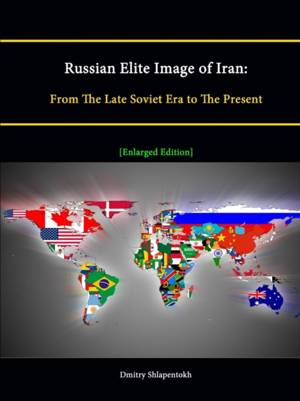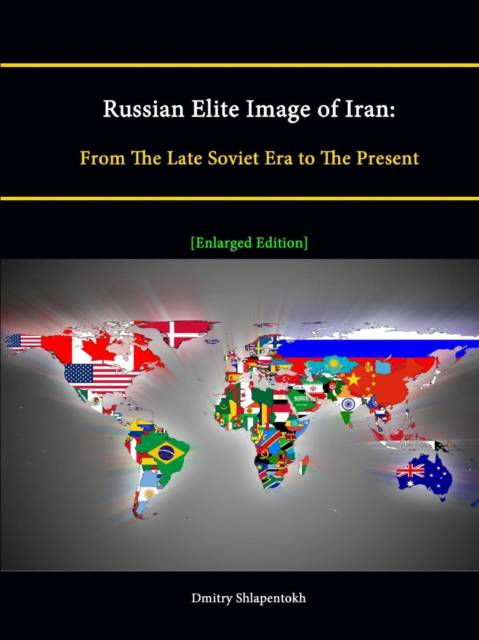
- Afhalen na 1 uur in een winkel met voorraad
- Gratis thuislevering in België vanaf € 30
- Ruim aanbod met 7 miljoen producten
- Afhalen na 1 uur in een winkel met voorraad
- Gratis thuislevering in België vanaf € 30
- Ruim aanbod met 7 miljoen producten
Zoeken
Russian Elite Image of Iran
From The Late Soviet Era to The Present [Enlarged Edition]
Dmitry Shlapentokh, Strategic Studies Institute
Paperback | Engels
€ 16,45
+ 32 punten
Uitvoering
Omschrijving
Since the late Soviet era, the presence of Iran has loomed large in the minds of the Russian elite. Soon after the end of the Union of Soviet Socialist Republics (USSR)-and even before-increasing numbers of Russian intellectuals became disenchanted with the West, especially the United States, and looked for alternative geopolitical alliances. The Muslim world became one of the possible alternatives. Iran became especially important in the geopolitical construction of Eurasianists or neo-Eurasianists who believed that Russia's alliance with Iran is essential for Russia's rise to power. Yet, by the middle of Russian President Vladimir Putin's tenure, increasing tension with the Muslim community and the rise of Russian nationalism had led to more complicated views of the Russian elite on Iran. At present, the Russian elite does not mind using Iran as a bargaining chip in its dealings with the West, especially the United States, and as a market for Russian weapons and other goods and services.
Specificaties
Betrokkenen
- Auteur(s):
- Uitgeverij:
Inhoud
- Aantal bladzijden:
- 100
- Taal:
- Engels
Eigenschappen
- Productcode (EAN):
- 9781304891747
- Verschijningsdatum:
- 9/02/2014
- Uitvoering:
- Paperback
- Formaat:
- Trade paperback (VS)
- Afmetingen:
- 216 mm x 279 mm
- Gewicht:
- 254 g

Alleen bij Standaard Boekhandel
+ 32 punten op je klantenkaart van Standaard Boekhandel
Beoordelingen
We publiceren alleen reviews die voldoen aan de voorwaarden voor reviews. Bekijk onze voorwaarden voor reviews.











